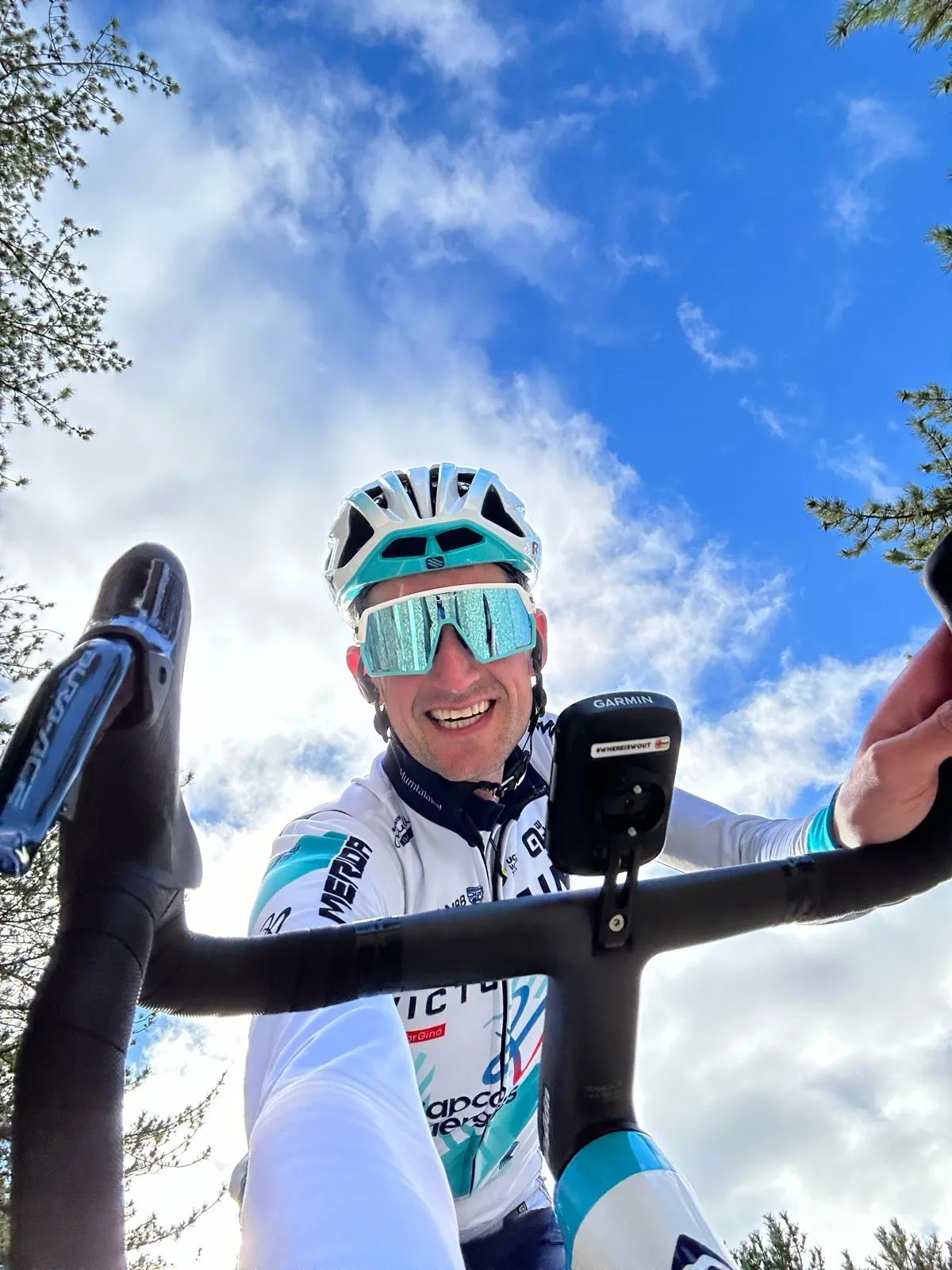This rider put his cycling dream back on the shelf: "I had no social life anymore" and "I have scars for life"
CyclingFriday, 18 October 2024 at 19:06

Two promising riders belonging to the Soudal-Quick Step development team have decided to give up their dream of becoming professional cyclists. The 18-year-old Frenchman Gabriel Berg and the 19-year-old Briton Cormac Nisbet have both spoken openly about their difficult decision.
In recent years, there has been an increasing competition among teams to sign the best talents. Whereas the focus used to be on the best riders in the U23 category, teams are now scouting even among juniors, or younger. More and more often, juniors are skipping the U23 phase altogether, jumping straight into professional cycling. In the case of Remco Evenepoel, this transition went very smoothly, but few have his talent for cycling.
Moreover, young riders are given less and less time to adjust to a higher level. Not long ago, it was quite common for neo-pros to gradually ease into the sport during their first year, but now results are expected quickly. As a result, young cyclists train and live like monks for the sport from a very young age, and this can eventually weigh heavily on them.
Nisbet is an example of this. He started his first season with the Soudal-Quick Step development team this year, but it ultimately wasn't what he had dreamed of as a young boy. "
I came to terms with the fact that the lifestyle I once dreamed of as a kid was no longer a future I wish to pursue — it didn’t bring me happiness.," Nisbet openly shared on his Instagram. "As a result, I have decided to step away from racing at this level and subsequently have mutually agreed to step down from the Soudal Quick-Step Devo team with immediate effect."
Read more below the Instagram post.
"People who guided me through tough times"
Nevertheless, cycling has also brought Nisbet many positive moments. "For as long as I can remember I have had one major goal in life, to become a professional cyclist. No matter what has happened outside of that goal, cycling has given me the discipline, focus and separation to pursue that. It has rewarded me in ways I didn’t know possible and challenged me to blood, scars and tears."
Ultimately, however, cycling did not give Nisbet enough to continue chasing his dream. "Cycling is a rollercoaster and the highs are less frequent than the lows. However, every moment — good and bad — has made me a stronger and greater person. I owe it so much. I also owe an immeasurable amount of gratitude to some incredible mentors I have had. People who have guided me through the tough points, given me opportunities and belief when most didn’t.
Nisbet's teammate, Berg, made the same choice. "So I took the decision to stop cycling at the highest level and return to the bike I loved, with fewer headaches, fewer constraints, and perhaps even more pleasure," he wrote on Instagram. Like Nisbet, cycling cost Berg more than he was willing to give. "I love cycling, and turning professional was a dream of mine, but this year made me realize that it wasn’t necessarily for me: lots of sacrifices, time away from my loved ones, repeated crashes, constant tension, little time to do anything else."
Read more below the Instagram post.
Berg: "Development teams don’t want to miss the next gold nugget"
In an interview with L'Equipe, Berg elaborated on his decision to leave cycling. He revealed that seeing many heavy crashes and the tragic deaths of Andre Drege (in the Tour of Austria) and his former teammate Thomas Bouquet deeply affected him. "Today, it was them, but it could have been me." Berg himself crashed many times, and hard. "My body is damaged, and I have scars for life. Last July, during a race in Belgium, I crashed four times in ten kilometers. I was a little scared."
The crashes weren’t the only reason he decided to stop. "My age also played a role in my decision to quit. At 18, I wasn’t ready yet — it was too soon. I didn’t have the maturity to give everything up for cycling. I didn’t know how to turn my passion into a career. I felt trapped in a routine — cycling, cycling, cycling, all the time. Outside of cycling, I saw no one. I had no social life. When my friends suggested going on holiday or hiking, I turned them down. These little things add up."
Shortly after quitting, Berg felt like he had failed. "I was ashamed because I initially saw it as a failure. I didn’t immediately accept that I hadn’t succeeded in living in that world. But I had the maturity to stop before I grew to hate cycling," Berg now recognizes the wisdom in his decision. He also mentions the intense hunt by teams for the next champion. "Development teams don’t want to miss the next gold nugget, the future Pogacar, the future Evenepoel. So as soon as a junior shows results, they sign him, but not all of us are like Pogacar or Remco."
Berg concludes with valuable message
"I don’t regret my choices," Berg continues. "It was a great experience. Maybe in two or three years I’ll try again. I’m still riding. I’m going to get an amateur license again. And when I train, I still wear my Quick-Step jersey." Finally, he wants to give young riders an important lesson. "I want to tell young riders to make the most of their junior years — they’re the best. And don’t give up on your studies. You need something to fall back on in case things go wrong — it’s just a cycling career," Berg wisely concludes.
Read also
IDL-productions
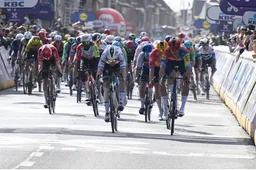
Favorites stage 1 Tour de France 2025 | A unique chance for big, fast men and their lead-out trains
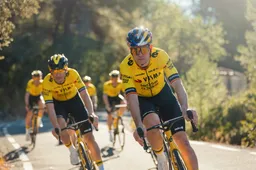
Van Aert loses count: Belgian star logs heavy training on Strava after battling illness again
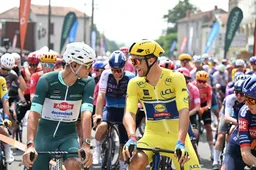
Favorites points classification Tour de France 2025 | If you can go for yellow, you can go for green too, right?
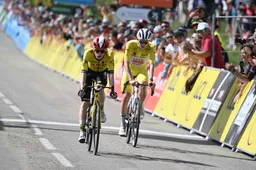
Favorites general classification Tour de France 2025 | Pogacar vs Vingegaard or can someone else exploit their weakness?
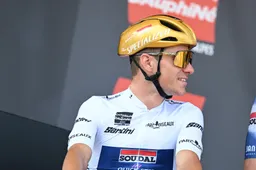
Favorites youth classification Tour de France 2025 | A one-man show for the white jersey? Maybe, maybe not…
Latest Cycling News
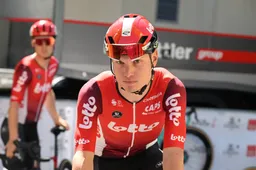
Lennert Van Eetvelt balks ahead of Tour: 'Month at altitude to gain 5%, and then you lose 10% with such a fall'

Pool tips Tour de France 2025 | Should you need advice, otherwise sorry for the (extra) stress!
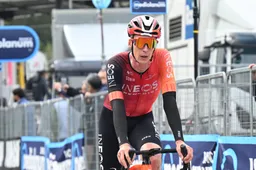
INEOS announces eight with which it is going to the Tour and looks to be competing on two fronts
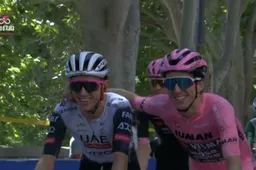
Bardet explains why the Yates brothers will be crucial in the Tour: "He's a bit more used to the domestique role"
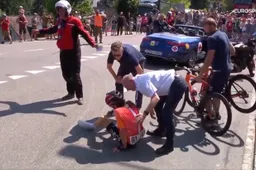
Despite a crash in Switzerland, Thomas seems to confirm his participation in the Tour with this message
Popular Cycling News
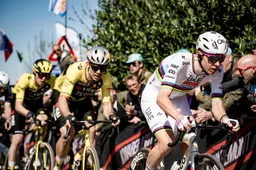
Preview Tour de France 2025 | Route set to test Pogacar’s weaknesses and play into the hands of Van der Poel and Van Aert
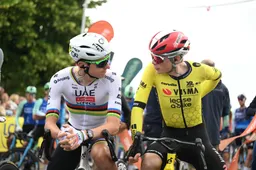
Vingegaard criticizes Tour de France organizers and is "forced to train on TT bike": "That stage is fundamental"

Van Aert loses count: Belgian star logs heavy training on Strava after battling illness again

Favorites youth classification Tour de France 2025 | A one-man show for the white jersey? Maybe, maybe not…

Favorites general classification Tour de France 2025 | Pogacar vs Vingegaard or can someone else exploit their weakness?
Latest Comments
- Maybe I was a bit disrespectful to Heiden. What he did was unique and exceptional but he wasn't the only one who combined those distances, nowadays it is just not possible and nobody competes in both distances. The same is true for cycling with for example the combination of Roubaix and de Tour de France. In Merckx era there were more riders who managed a top10 in both races than currently.Joostmehrtens19-06-2025
- Two old men shouting at pigeons in the park…JonS16-06-2025
- Out of touch old men hankering after their youth through rose tinted spectacles, their arrogance almost outshines their irrelevance. Turn the volume down, this modern stuff just isn't music like we used to sing...johnny20whales16-06-2025
- In talking speed skating, the days when Heiden did that, nobody else did that. And Eddy couldn't do the equivalent of the bike. His 200 on the velodrome was good, but not world competitive for gold. Heiden was in his own world on the ice, moreso than Eddy if we pretend Eric didn't have a very short career on the ice.Veganpotter16-06-2025
- They wouldn't have dropped HIM so easily.... the GOAT. They would have dropped the rest from that era easily thoughVeganpotter16-06-2025
- Merckx was able to win in a break away on a flat (sprinters) stage, what do you mean they did not drop that easily in his time. Vlaeminck won in the mountains and the classics, but now you need to specialise. The days that a Eric Heiden could win the sprint and the 10k and everything in between are long gone and cycljng is no differentJoostmehrtens16-06-2025
- Carsapaz and Del torro were not capable of chasing Yates. They paused and looked at each other because they didn't have it in them. Yates had kept his powder dry waiting for this stage and demolished both of them. They lost Yates won. Your second guessing is utter nonsense., if either felt they could close Yates down they would have , just like they did countless times for other riders. They blew up , Yates excelled.Uphillbilly05-06-2025
- Carapaz is full of it. He is absolutely irrelevant after a rant at del Toro. Isaac had no obligations to do anything for Carapaz. It should remind one of the saying that goes lke this: "If I jump off the bridge, are you going to jump too?" If Caapaz wanted to win the Giro he should have chased Yates with or without Isaac. And if del Toro could follow, then so be it. But it was Carapaz's choice to slow down and stare at Isaac. Isaac was on the radio at times and you can bet he was being told by the Team car to do just what he was doing. Did I like that he didn't set out after Yates himself, NO. But the 21 year old was probably being instructed to do what he did, otherwise you can bet we would have heard from UAE mgmt. that Isaac chose to ignore their orders. But what we did hear was they were happy with his result. Which I think was a terrible betrayal of their young rider, who I think was capable of more than that penultimate stage showed. The Giro finished on a truly sour note as far as I'm concerned, because it was not "raced" The most crucial stage of the whole 21 stage race was simply given away, playing games with the unwritten rules of bicycle racing. "Leaders jerseys responsibility" and all that nonsense. Just RACE! It was disgraceful.
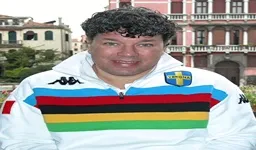 reemmo004-06-2025
reemmo004-06-2025 - Well this aged like fine milkGlyn31-05-2025
- This is just mean-spirited.agnessk29-05-2025
